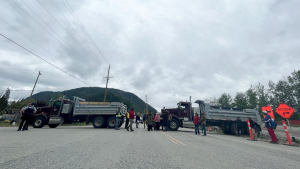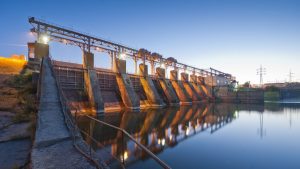Northern British Columbia is on the cusp of a massive transformation, says Ken James, president and CEO of West Coast Olefins Ltd.
James, who has spent his career travelling the world working in the energy sector, believes the next big thing in energy is right in his backyard in Prince George.
“Typically, these projects are driven by cheap feedstock,” said James. “What has happened in the last decade is the cheapest feedstock is actually in North America. And the cheapest in Western Canada and B.C. is on the doorstep to the biggest and fastest growing markets in Asia.”
To capitalize on this, West Coast Olefins Ltd. is developing a $5.6-billion project to recover ethane and other natural gas liquids (NGLs) from the Enbridge Westcoast Energy Pipeline that runs just east of Prince George, B.C. The recovered ethane will then be used as the primary feedstock to an ethylene plant. Recovered propane, butane and condensates will be sold to local and Asian buyers.
The project is currently working its way through B.C.’s regulatory process and trying to find a new site further from the city after plans to build the facility on industrial lands in Prince George were scrapped. According to filings with the province, the project team expects fabrication and construction activities could start in early 2021, and plant start-up is planned to occur by the end of 2023.
“There’s an extra couple million dollars a day of value-added revenue that can be extracted from that same product,” said James. “And it would reduce carbon emissions by a million tons a year. The emission reduction is more than our whole project would emit, making it a carbon negative project.”
This is especially important in the B.C. context, where having a compelling story of environmental sustainability can make or break a project.
“Doing a project in B.C. today, if it does not have a good environmental story it’s not going anywhere,” said James. “In B.C., every one of the hurdles is social. The regulatory regime is not tough if you can get through the social stuff. If you don’t do the social side right, any approval from the government is worthless. You have to find a way through that and hopefully we will.”
James also believes the project has a good economic story as it will provide revenue and high-paying jobs for a country hit by an economic crisis and a region needing to transition to other industries. James explained Prince George’s forestry industry has been decimated by pine beetles, spruce beetles, fires and excessive logging, eliminating much of that resource, making a shift to other sectors necessary.
“I believe Northern B.C. will experience a shift from forestry to energy and more of it will be on the value-added side of things. This will create jobs – fabrication and manufacturing jobs – and long-term employment.”
James also believes this shift is a huge opportunity to practice one of his company’s core philosophies: action over activism. He explained Canada’s midstream and downstream energy industry is dominated by facilities that were designed or built over 40 years ago, long before modern environmental standards were conceived. Newer facilities can do the job more efficiently with far less impact on the environment.
“We can all sit there and have green bins in the yard, but that has very little impact,” said James. “It makes us feel good, but to tackle the problem we need big things that have a big impact. The faster we replace all this aging industrial infrastructure with new designs that can meet environmental requirements, that’s the single biggest thing we can do to reach aggressive targets.”
As B.C.’s natural gas industry begins to pick up steam, James sees a Prince George transformation similar to Fort McMurray, Alta.
“I think there will be so much activity in Northern B.C. it will completely transform it,” said James. “It will go through a transition like what Fort McMurray went through. Lots of good things but also some painful things.”
More LNG facilities would also pave the way for more NGL recovery facilities like West Coast Olefins. In the meantime, James is hopeful that a provincial election results in a majority government before the year is out.
“Dealing with the economy and COVID-19, I think the province will be better off with a majority government,” said James. You have to have that kind of government and mandate to move forward in a positive way.”
Follow the author on Twitter @RussellReports.











Recent Comments
comments for this post are closed